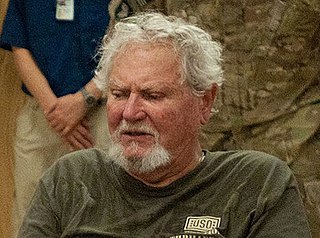A Quote by Nana Patekar
I want to tell the children of Kashmir that they should read, write, and learn and come to the mainstream.
Related Quotes
I didn't want to teach my kid how to read, so I used to read to him at night and close the book at the most interesting part. He said, “What happened then, daddy?” I said, “If you learn to read, you can find out. I'm too tired to read. I'll read to you tomorrow.” So, he had a need to want to learn how to read. Don't teach children how to read. Don't teach them mathematics. Give them a reason to want it. In school, they're working ass-backwards.
Making fiction for children, making books for children, isn't something you do for money. It's something you do because what children read and learn and see and take in changes them and forms them, and they make the future. They make the world we're going to wind up in, the world that will be here when we're gone. Which sounds preachy (and is more than you need for a quotebyte) but it's true. I want to tell kids important things, and I want them to love stories and love reading and love finding things out. I want them to be brave and wise. So I write for them.
When you learn to read and write, it opens up opportunities for you to learn so many other things. When you learn to read, you can then read to learn. And it's the same thing with coding. If you learn to code, you can code to learn. Now some of the things you can learn are sort of obvious. You learn more about how computers work.
As you consider whether to move a child into formal academic training, remember that we want our children to do more than just learn how to read and write; we want them to learn in such a way that they become lifelong readers and writers. If we push our children to start learning these skills too far ahead of their own spontaneous interest and their capacity, we may sacrifice the long-range goal of having them enjoy such pursuits.
I want to write about people I love, and put them into a fictional world spun out of my own mind, not the world we actually have, because the world we actually have does not meet my standards. Okay, so I should revise my standards; I'm out of step. I should yield to reality. I have never yielded to reality. That's what SF is all about. If you wish to yield to reality, go read Philip Roth; read the New York literary establishment mainstream bestselling writers
I think the American people would be compassionate and practical. But we need to be talking about assimilation as well, something that is politically incorrect, I know, to say that people should learn English, should learn American exceptionalism, shouldn't come here to use our freedoms to undermine the freedoms we give to everybody. But there's nothing wrong with saying people who want to come here should want to be Americans.




































